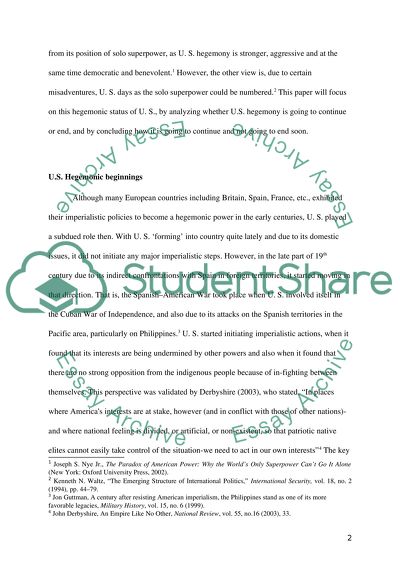Cite this document
(“Has the Era of US Hegemony ended Essay Example | Topics and Well Written Essays - 3000 words”, n.d.)
Retrieved from https://studentshare.org/history/1396721-has-the-era-of-us-hegemony-ended
Retrieved from https://studentshare.org/history/1396721-has-the-era-of-us-hegemony-ended
(Has the Era of US Hegemony Ended Essay Example | Topics and Well Written Essays - 3000 Words)
https://studentshare.org/history/1396721-has-the-era-of-us-hegemony-ended.
https://studentshare.org/history/1396721-has-the-era-of-us-hegemony-ended.
“Has the Era of US Hegemony Ended Essay Example | Topics and Well Written Essays - 3000 Words”, n.d. https://studentshare.org/history/1396721-has-the-era-of-us-hegemony-ended.


